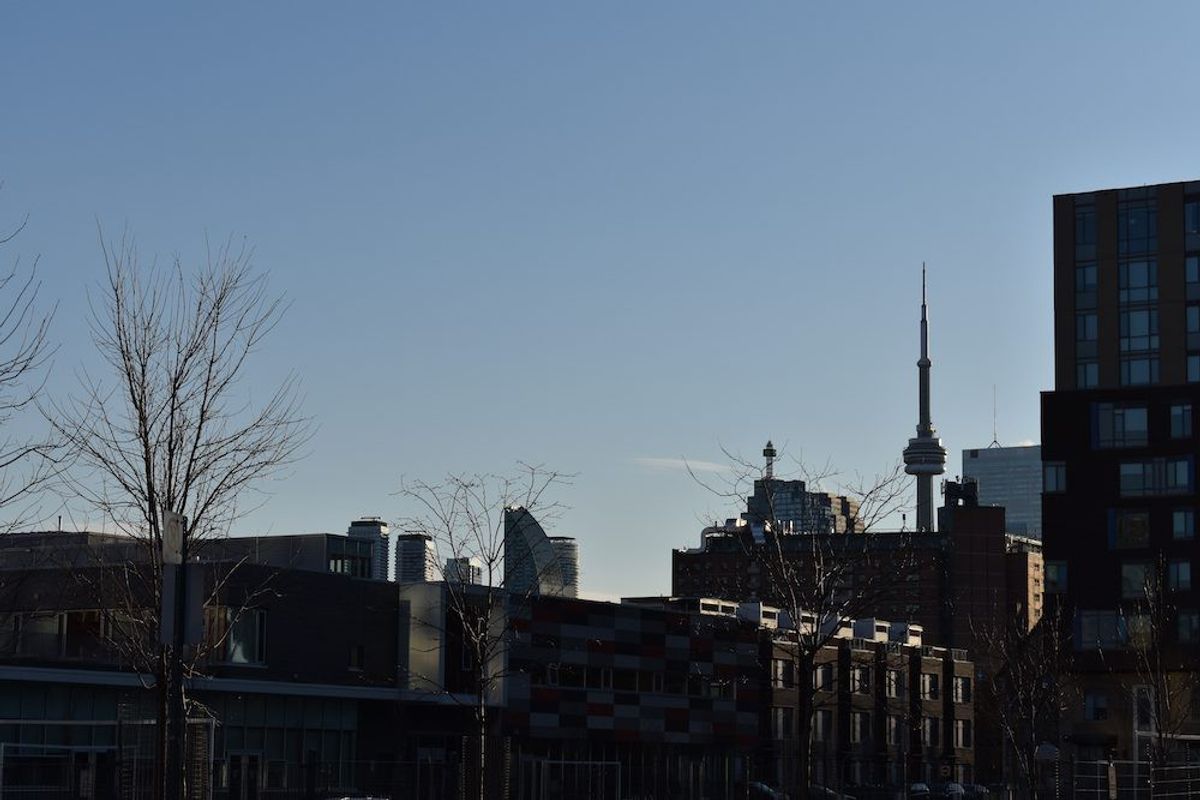It’s a bit early to start talking about the lessons of COVID-19, but already the pandemic has exposed the critical importance of a strong public sector.
Sadly, after decades of tax cuts, cutbacks, civil service cuts, austerity budgets, deregulation and anti-government governments, the public sector has been hollowed out to the point where it can’t cope under normal circumstances, let alone at a time of a global pandemic. Every day we hear another warning about a health care system – including our own – on the verge of being overwhelmed.
READ: Everything That’s Been Cancelled in Toronto Because of Coronavirus
Around the world, people have bought into the dubious notion that business can do it better. The private sector, we are told over and over, is the answer. In the US, where heath care is delivered largely by large (for profit) corporations, President Donald Trump felt it necessary to reassure people that they wouldn’t have to pay for a COVID-19 test – if they could manage to find one. As has been pointed out, even before the pandemic hit, Trump had gutted the country’s public health administration.
Canada isn’t the US, of course; our fear and loathing of government is nothing like the States. But neither are we immune. Ontario Premier Doug Ford, who loves to declare that the province is “open for business,” has undone environmental legislation, cancelled green incentives and made health and education cuts his top priorities. To his credit, however, Ford has grasped that COVID-19 is a crisis and has taken steps that go against his every grain, closing restaurants and bars, and all non-essential businesses while freeing up money for the vulnerable and even pleading with parents not to make play dates for their kids.
On a personal level, the coronavirus crisis has left us cut off and isolated behind closed doors. Paradoxically, it has also been a powerful reminder that we are all connected and that no one, no matter how rich and powerful, is exempt. In a time of growing inequality and economic disparity, COVID-19 has unexpectedly turned out to be a great leveller. Whether this new communal awareness outlasts the pandemic remains to be seen, but it’s hard to imagine that it can be forgotten.
For the corporate sector, the challenge presented by coronavirus is to relearn how to operate in the real world. Profit maximization can no longer be the only organizing principle behind business. The blind adherence to shareholder interests has led to a psychotic sense of disassociation that has made it difficult for big business to see beyond the bottom line. In January, US commerce secretary Wilbur Ross illustrated just how disconnected corporate thinking has become when he declared that the virus would be good for American business.
As the fight against COVID-19 becomes more war–like in its scope and urgency, industry in being called on to respond as it has in more conventional conflicts. During World War II manufacturers switched from consumer goods to weaponry; today they must make respirators, test kits, antiseptic wipes and the like, all of which are in short supply. Corporations are citizens, too. At the same time that reports of price gouging have increased, some manufacturers have responded in admirable fashion and are turning themselves to medical equipment, anti-viral supplies, etc.
One thing is clear: we cannot return to the conditions that prevailed when the outbreak began. It’s also obvious that our collective response to the pandemic has in many cases made a bad situation worse. The tendency to politicize the pandemic – especially in the US – has raised painful questions about who or what should receive public assistance.
The enormous cost of controlling COVID-19 has caused many to question whether we can afford to save ourselves as well as the economy, and which matters most. The global economy, let alone that of Canada, has suffered grievous damage. Thousands have been laid off and many businesses won’t survive the shutdown. Though the federal government has dedicated $82 billion to keep the economy afloat, it’s hard to say how much of that will go to ordinary people and when.
Compared to other countries, however, Canada’s response is tepid. Norway, for example, has pledged to cover 100 percent of wages for up to 20 days. Denmark has promised 75 percent as long companies don’t lay off staff. In Sweden, workers will receive 90 percent of their salary, half to be covered by government, half by companies.
Then, of course, there are Canadians themselves. Many have responded with patience, understanding and quiet displays of local heroism. But others have carried on as if COVID-19 was something that didn’t affect them. They are unwilling to make the sacrifices medical experts tell us are necessary to stop the virus. Like it or not the pandemic implicates every one of us. We are all potential vectors. If even one of us is at risk, we are all at risk.
That’s the lesson. Sounds simple, but learning it is hard.




















